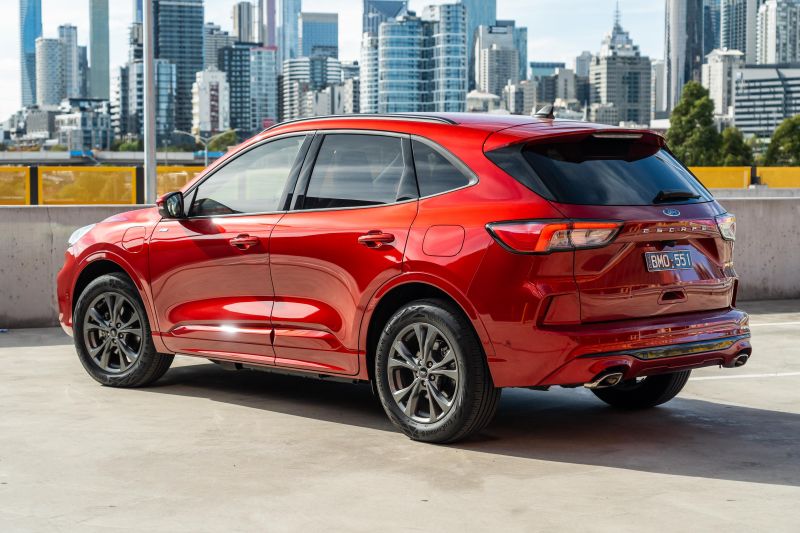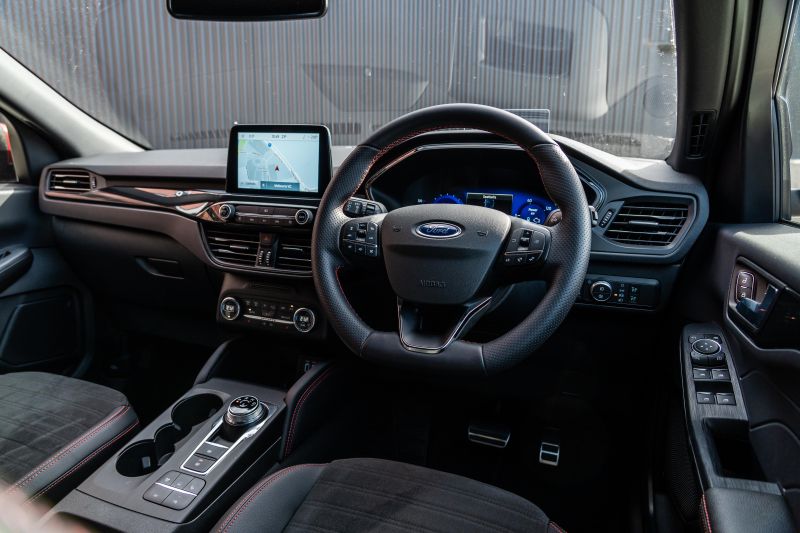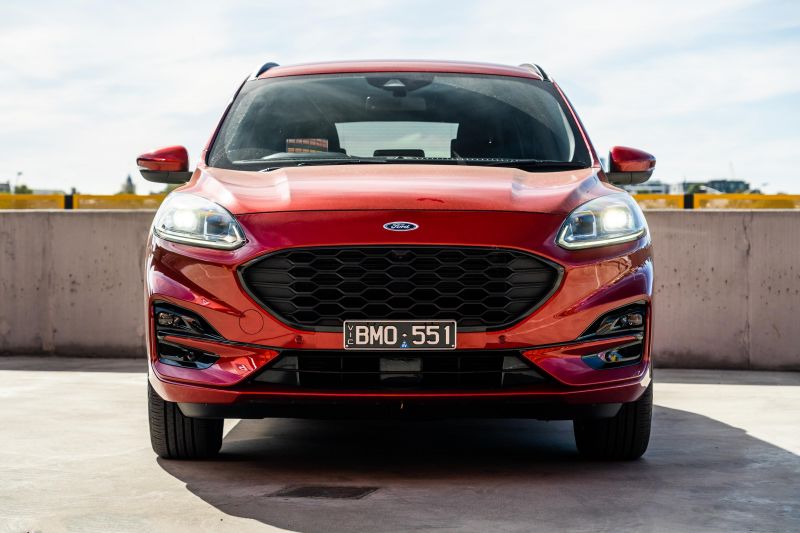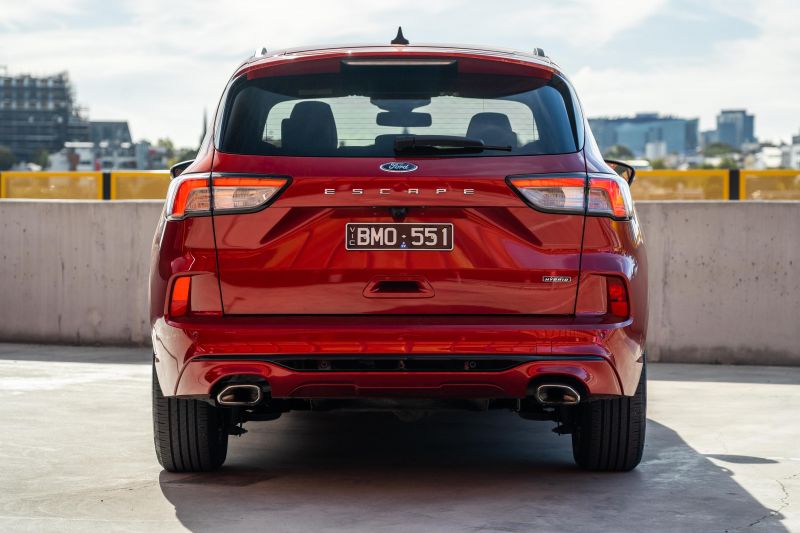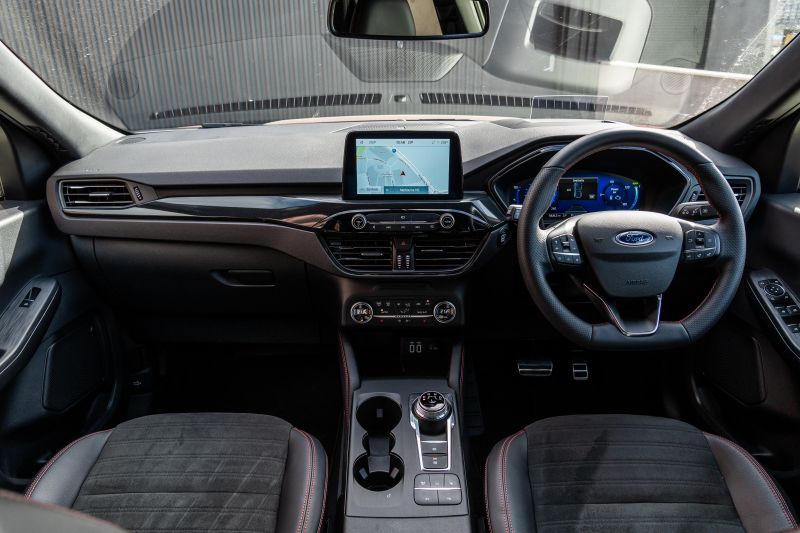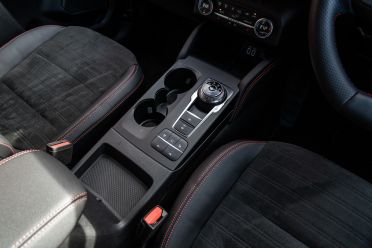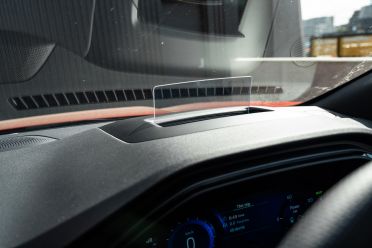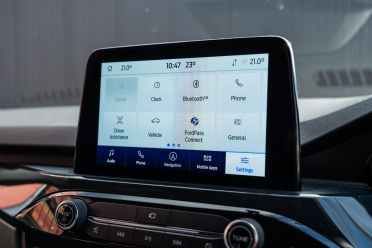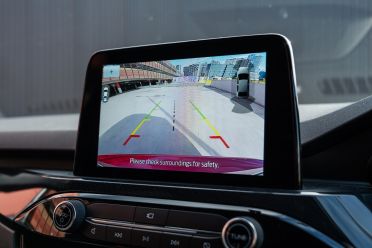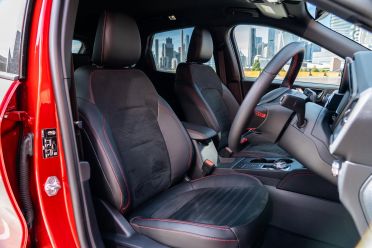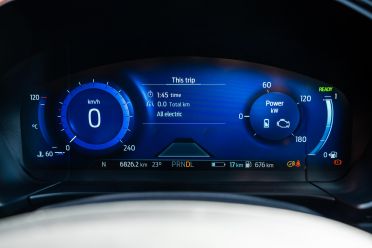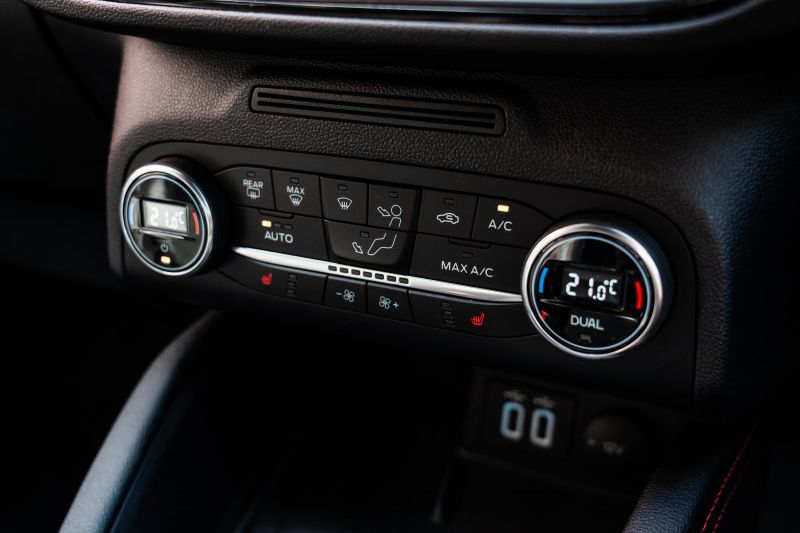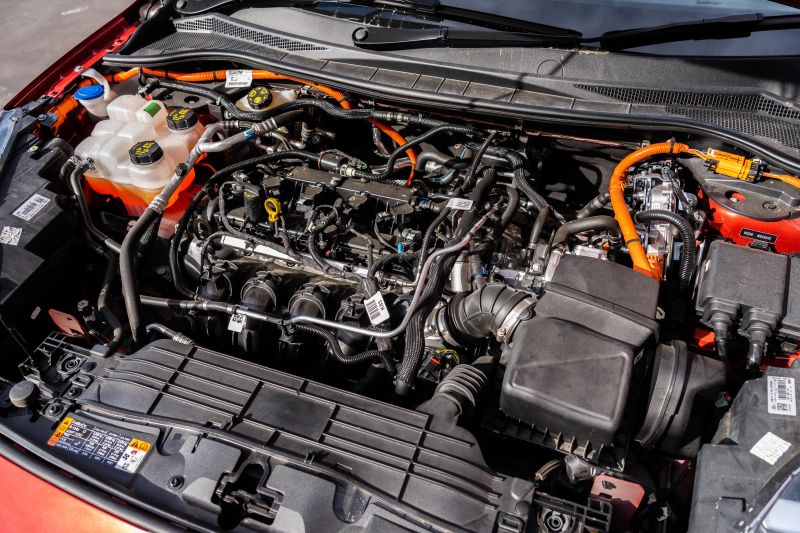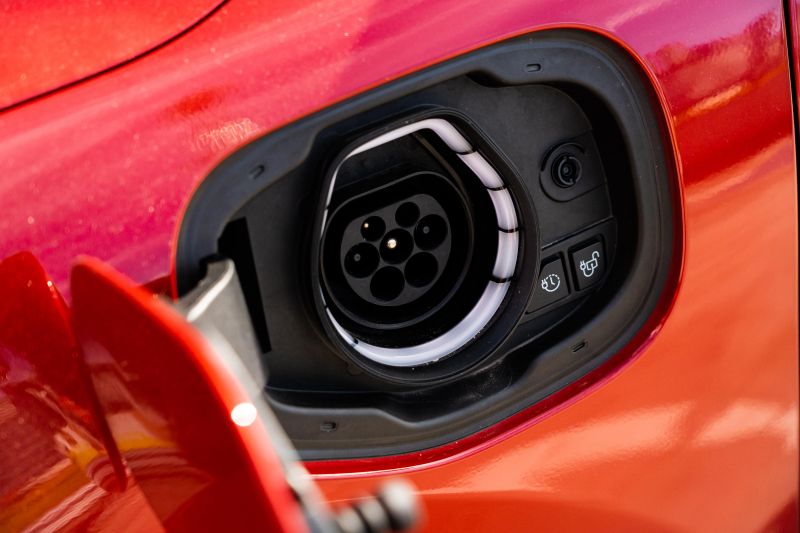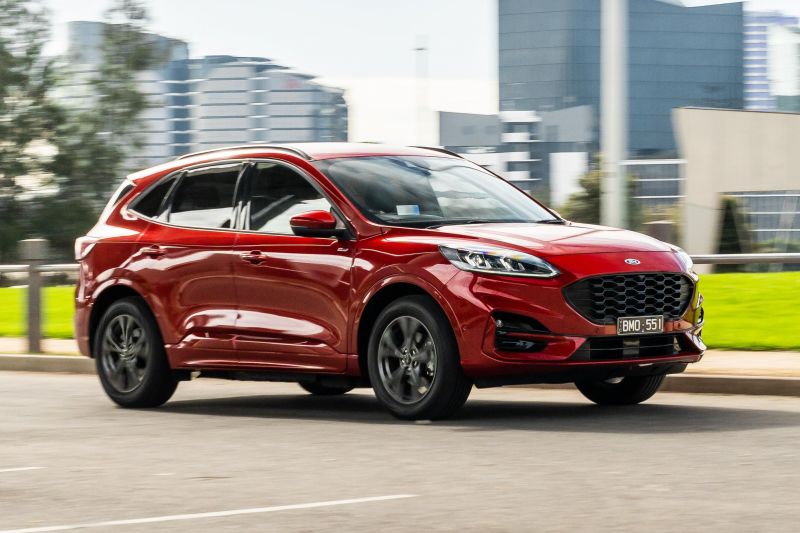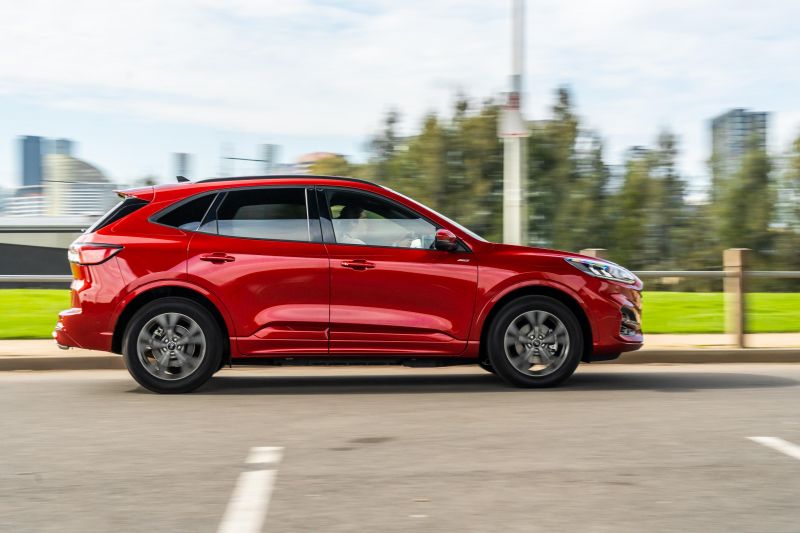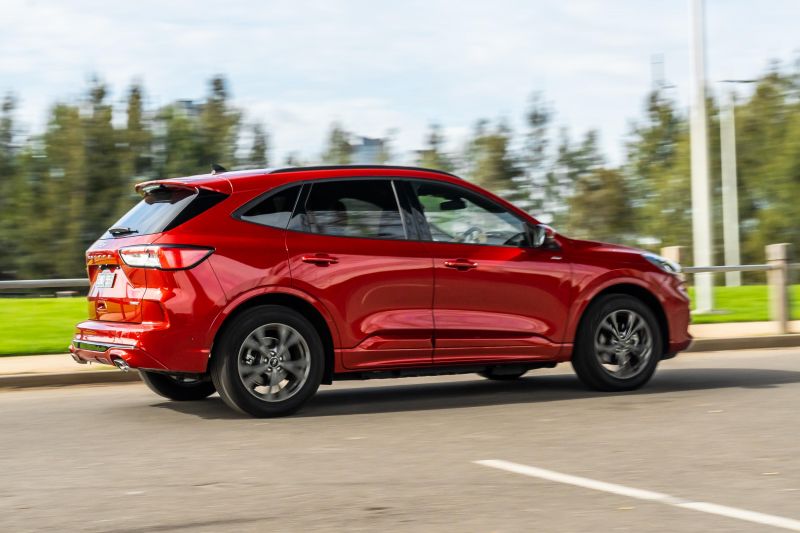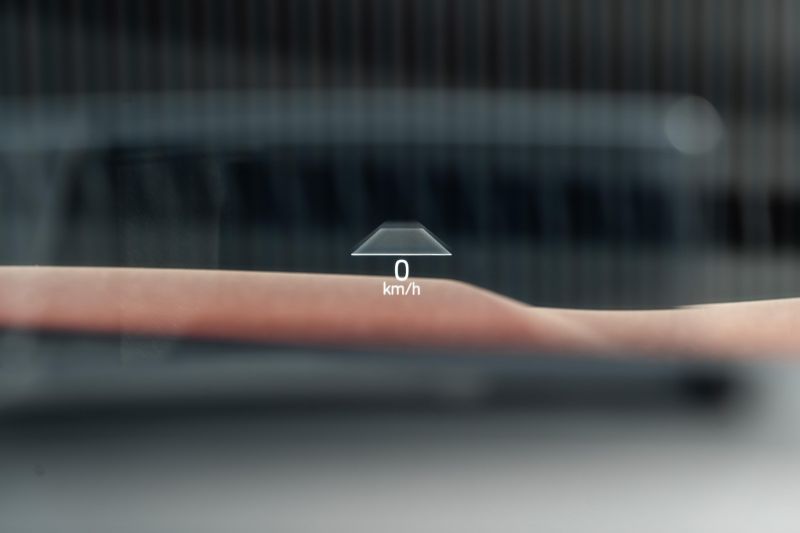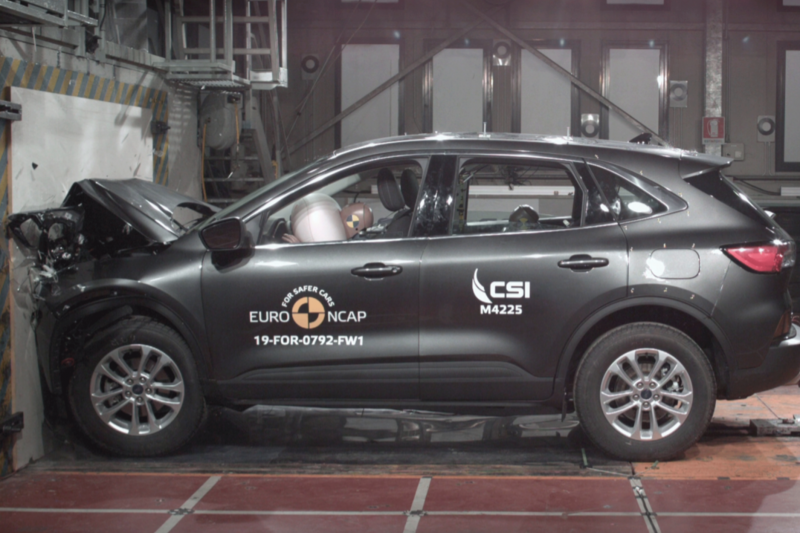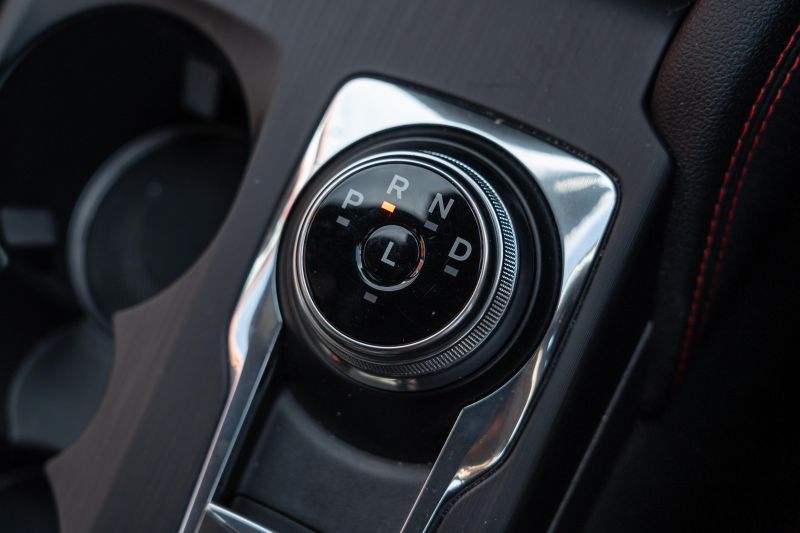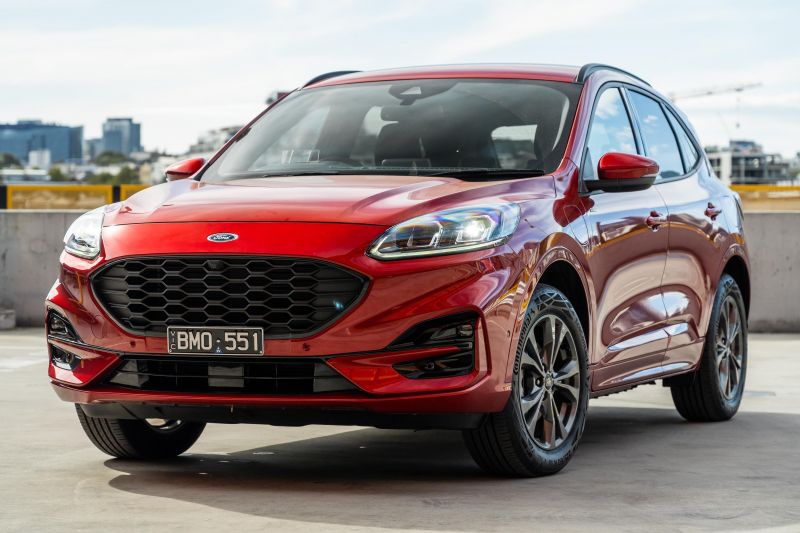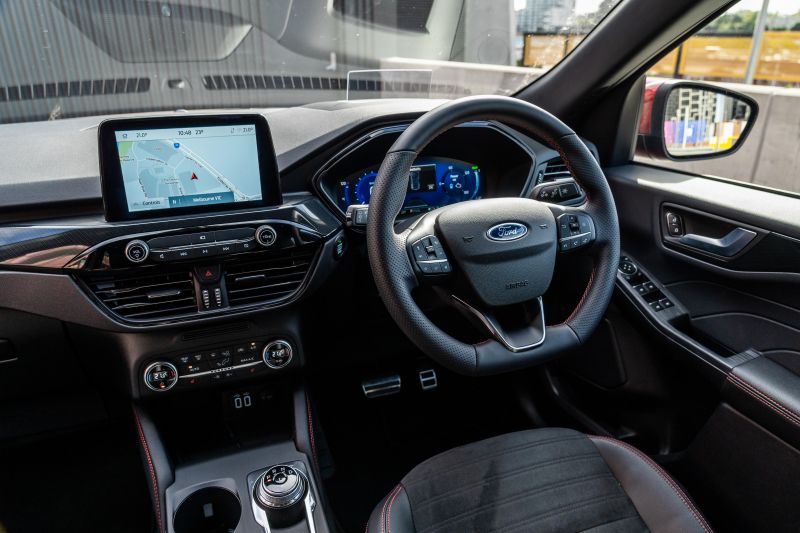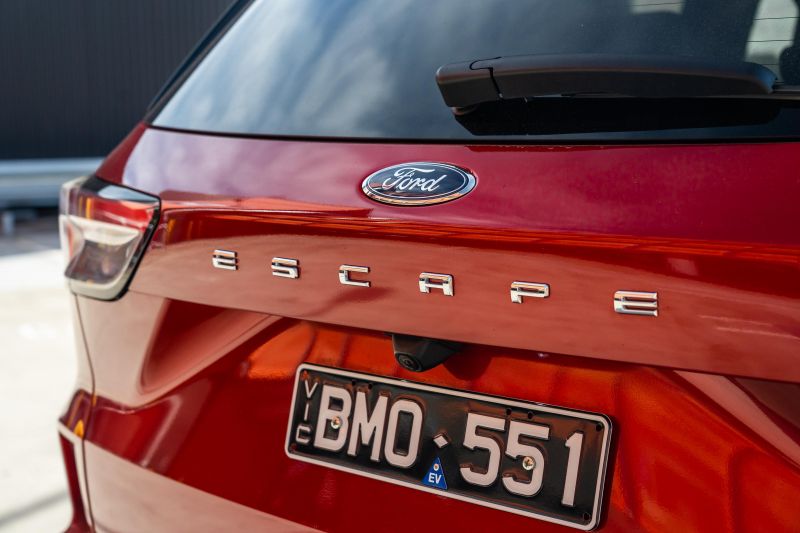
[ad_1]
The mainstream mid-sized SUV section is Australia’s largest by quantity, and is totally teeming with opponents from nearly each mass-market model.
So after all Ford is exiting it. It should farewell the Escape by the top of this 12 months.
No, we received’t be getting the facelifted Escape revealed in different markets, and Ford has stated nothing a couple of alternative within the form of the associated however boxier Bronco Sport.
Meaning Ford is following Jeep in exiting a section that even Citroen fields an entry in in Australia. Within the first half of 2023, Ford bought simply 1311 Escapes, which noticed it outsold by the likes of the Renault Koleos and Volkswagen Tiguan.
Ford says poor provide out of Europe is responsible. Alas, Ford hasn’t been capable of promote a mid-sized SUV in important volumes for years now, and that’s regardless of the corporate having had two generations of Escape in a row now which have deserved to promote a hell of loads higher.
It’s particularly irritating to see the Escape go as a result of it took so lengthy for this, the plug-in hybrid (PHEV) variant, to get right here. After quite a few delays, it lastly arrived final 12 months. And now it’s about to go.
Carrying Kuga badging in Europe, this electrified Escape is the best-selling PHEV on that continent. Right here, it’s a wholly totally different story, with PHEVs extensively missed by a lot of the shopping for public, identical to the Escape.
It appears destined for a future instalment of my collection on Fords you will have forgotten about, however is the Escape PHEV a lame duck loser or a forgotten gem?
How a lot does the Ford Escape ST-Line PHEV value?
The Escape PHEV is offered solely in mid-range ST-Line trim with front-wheel drive, and is priced at $54,940 earlier than on-road prices.
That’s a bounce of $14,950 over the front-wheel drive ST-Line petrol which, whereas hardly uncommon for a PHEV in Australia, continues to be fairly a steep premium.
It means this electrified Escape, regardless of solely being in mid-range trim, is $3350 pricier than the flagship petrol variant, the all-wheel drive Vignale.
There are some further options over the petrol ST-Line, which we’ll element later, and also you additionally get entry to distinctive choice packages to assist deliver it nearer to the extent of the Vignale.
Our tester got here outfitted with the $1950 ST-Line Possibility Pack and the $1500 Parking Pack, in addition to $700 metallic paint.
Primarily based on a Sydney postcode, you’re taking a look at a drive-away value of $60,465 with none choices. As examined, our Escape PHEV rung up at $64,820 drive-away.
Whereas PHEVs are area of interest merchandise in Australia – pure electrical automobiles outsold them by round 12-to-1 within the first half of this 12 months – the Escape PHEV nonetheless has some competitors.
The Mitsubishi Outlander PHEV based this section, and in its newest era it begins at $56,490 earlier than on-roads in base ES guise – although, notably, it does embody all-wheel drive.
Cupra’s smaller Formentor VZe is $68,990 drive-away, whereas the all-wheel drive Peugeot 3008 GT Sport Plug-In Hybrid is a gobsmacking $82,915 earlier than on-roads. At the exact opposite of the spectrum is the MG HS Plus EV, which begins at $49,690 drive-away and tops out at $52,690 drive-away.
Within the worth stakes, then, the Escape PHEV can’t match the MG but it surely meaningfully undercuts every thing else.
What’s the Ford Escape ST-Line PHEV like on the within?
The Escape PHEV is deceptively giant.
From the skin, its bloated Focus styling makes it appear like one of many smaller SUVs on this section. And but, step into the again and there’s loads of headroom, legroom and toe room.
The entrance seatbacks are scooped out to maximise knee room and the ground is nearly fully flat.
Little one seats are accommodated with three top-tether and two ISOFIX anchor factors, and there are air vents and a few USB shops.
You’ll be able to maximise boot house by sliding the second-row seats ahead; in addition they break up and fold 60/40.
Within the boot, there’s a 12V outlet and levers to drop the rear seats. Underneath the boot ground, there’s a space-saver spare wheel – actually higher than the can of goo you get in some PHEVs.
Boot capability for the PHEV is identical as petrol Escapes, with 556L of house with the second row in use, measured to the roof. The boot ground measures 1729mm lengthy, 1051mm between the wheel arches, and 833mm tall.
Up entrance, there are soft-touch plastics in all of the locations you’d anticipate them to be on this section, even on the edges of the centre console, the highest and entrance of the sprint, and the entrance doorways.
There’s additionally brushed trim on the centre console, in addition to fake carbon-fibre inserts, whereas there are illuminated cup holders and Ford’s typical soft-blue accent lighting.
Regardless of this, the Escape lacks the aptitude of an Outlander or the upscale vibe of a Mazda CX-5.
It’s all a bit dour and workmanlike in look, from the slabby sprint to the door trims that appear like injection-moulded onerous plastic to the fake carbon trim that doesn’t add any distinction.
We didn’t expertise any construct high quality points, although the doorways don’t shut with fairly as stable a thunk as I’d anticipate from a Ford of Europe product.
The 8.0-inch display screen has been overtaken by myriad rivals within the display screen dimension wars – no marvel Ford has gone to an infinite 13.2-inch unit within the up to date Escape we’ll sadly miss out on.
Ford’s Sync 3 system works nicely, with an simply navigable menu construction, on-screen shortcuts, fast response occasions and graphics which can be neat with out being overly flashy.
Likewise, the 12.3-inch digital instrument cluster is easy and easy. There’s not the extent of adjustability as you’d discover in, say, a Cupra Formentor but it surely all works nicely.
There’s a head-up show, but it surely tasks velocity and driving info on a pop-up display screen as a substitute of the windscreen. It’s not the fanciest set-up, then, however in a section the place head-up shows are nonetheless lacking from some entrants that is hardly a criticism.
The Blue Oval model has flubbed one inside basic, nevertheless. The entrance seats have a surprisingly brief base and really feel fairly flat. At the very least their heating performance works nicely – these seats get sizzling in a rush.
The seats might disappoint however the steering wheel is great. It has a beautiful leather-based wrapping and feels unbelievable in your fingers, whereas the switchgear is easy and intuitive.
On the base of the centre stack, there are two USB-A shops plus a 12V outlet and a wi-fi charging pad that’s simple to entry.
Switchgear for the sound system sits happy with place on the centre stack, just under the touchscreen however nicely above the local weather management.
Storage is common. There are comparatively giant bottle holders within the doorways, however the centre console bin is pretty small with a big intrusion.
A observe: our tester wasn’t the latest Escape, which Ford calls an MY23.25. This automobile has solely minor modifications, all confined to the inside.
A USB-C port replaces one of many USB-A ports within the rear, there are new sill plates with Ford logos, and the temperature show has disappeared from the local weather management dials.
What’s below the bonnet?
The Escape PHEV’s drivetrain consists of a 2.5-litre naturally-aspirated petrol engine working the efficiency-focused Atkinson drive cycle, an electrical drive motor-generator, and a 14.4kWh lithium-ion battery.
There’s a complete system output of 167kW, despatched to the entrance wheels via an e-CVT automated transmission.
It has a kerb weight of 1843kg, or 222kg heavier than the equal front-wheel drive petrol model.
The PHEV can be the least succesful towing automobile within the Escape vary. It has a most braked towing capability of 1200kg, the place all the opposite fashions can tow as much as 1800kg.
Ford claims mixed cycle gasoline economic system of 1.5 litres per 100km, however these PHEV consumption figures all the time carry an enormous asterisk.
The Escape would show a claimed 72km of vary totally charged (regardless of Ford’s official WLTP declare of 56km), although this might drop shortly.
On my morning freeway commute of round 52km, I may get to the workplace in EV mode with out utilizing a drop of petrol; on one occasion, I consumed 0.2L/100km general purely as a result of the engine kicked down throughout an overtaking manoeuvre.
Over a loop comprising inner-city, suburban and freeway driving and with the automotive in Regular (i.e. principally EV) mode, I averaged 0.8L/100km.
Over the same loop with a depleted battery, we nonetheless averaged 5.1L/100km because the Escape PHEV operates as an everyday hybrid in these situations. To get essentially the most out of it, nevertheless, we advocate plugging it in in a single day.
Total, we had a mean gasoline economic system readout of two.4L/100km over 1830km of driving, 1429km of which was on pure electrical energy. We additionally recorded a mean vitality consumption of 16kWh per 100km.
How does the Ford Escape ST-Line PHEV drive?
The Escape PHEV impresses with its refinement.
Transitions between the electrical motor and petrol engine are easy, and when the latter kicks in it has an engine observe that’s on the similar time hushed and but considerably sporty in sound. At freeway speeds, little or no noise enters the cabin.
Whereas there’s plenty of energy on faucet and it’s solely despatched via the entrance wheels, there’s no downside with torque steer or entrance wheelspin. We’ve beforehand recorded a 0-100km/h time of 9.0 seconds, so it’s not as speedy as Escapes with the usual 2.0-litre turbo 4.
The PHEV doesn’t really feel fairly as agile because the petrol Escape, both, and is a bit more proof against modifications in route. The steering is well-weighted, if missing considerably in really feel, however general the Escape isn’t averse to a winding street. Physique roll can be typically fairly well-controlled, although the brake pedal feels a bit picket.
There’s a barely lumpy high quality to the trip, one thing we’ve noticed in lots of plug-in hybrids and electrical vehicles as a result of further weight of the battery down low. It will possibly really feel a contact unsettled over extra undulating, poorly surfaced roads.
The Escape is without doubt one of the few automobiles on this section to function a less complicated torsion-beam rear suspension; solely all-wheel drive fashions have multi-link rear suspension. Regardless of this much less subtle set-up, the rear doesn’t thump and crash over bumps.
Past the usual Eco, Regular, Snow/Sand, Sport, and Slippery drive modes, there are 4 PHEV-specific modes.
Auto EV mode stays in electrical mode for essentially the most half, although it’ll faucet the petrol engine when obligatory. EV Now depends solely on electrical energy, though even when chosen the petrol engine can hearth when you carry out a kickdown.
EV Later will save battery cost by leaning on the petrol engine, whereas EV Cost will use the engine to cost the battery.
The headlights are very good. The beam shifts with the route of the steering wheel, and the adaptive high-beam will block out oncoming automobiles to forestall dazzling their occupants.
We additionally discover the mix of adaptive cruise management and lane centring to work fairly nicely. It helps hold the automotive correctly positioned in its lane with out feeling overly obtrusive.
Flip-by-turn directions from each Google Maps and the manufacturing facility navigation system seem within the head-up show, together with the velocity restrict.
The semi-autonomous parking help system isn’t fairly as intelligent. Once we examined it with some common parking bays, we discovered it required plenty of changes and even then wasn’t fully throughout the traces. You even have to carry down the button to maintain it working.
What do you get?
The Escape ST-Line PHEV doesn’t have precisely the identical degree of specification as its petrol counterpart.
Distinctive to the PHEV are a 10-way energy driver’s seat, a rear centre armrest, a 10-speaker B&O Play sound system, and partial Sensico leatherette upholstery (as a substitute of material).
Normal tools on all ST-Line fashions embody:
- Automated LED headlights
- Automated high-beam
- Fog lights
- 18-inch alloy wheels
- Rain-sensing wipers
- Privateness glass
- 8.0-inch touchscreen infotainment system
- Wired Apple CarPlay, Android Auto
- Satellite tv for pc navigation
- DAB+ digital radio
- Wi-fi telephone charger
- Keyless entry and begin
- Ambient lighting
- Digital parking brake
- Tyre stress monitoring
The $1950 ST-Line Possibility Pack provides:
- Energy tailgate
- Heated entrance seats
- LED ‘Glare Free’ headlights
- Head-up show
The $1500 Parking Pack provides:
- Semi-autonomous parking help
- Entrance digital camera
- Door edge guards
An MG HS Plus EV Essence bests the Escape within the tools stakes, with a regular panoramic sunroof, heated entrance seats, and leather-based upholstery, however in contrast with the bottom Outlander PHEV it stands tall with its normal energy driver’s seat, rain-sensing wipers, and satellite tv for pc navigation.
Is the Ford Escape ST-Line PHEV protected?
The Escape PHEV is roofed by the identical five-star ANCAP security ranking as the remainder of the vary.
It acquired an grownup occupant safety ranking of 92 per cent, a baby occupant safety ranking of 89 per cent, a susceptible street consumer safety ranking of 82 per cent, and a security help ranking of 77 per cent.
Normal security tools on all Escape fashions consists of:
- AEB incl. Pedestrian, Bike owner detection
- Adaptive cruise management with cease/go
- Blind-spot monitoring
- Clever velocity restrict help
- Lane-keep help
- Rear cross-traffic alert
- Reversing digital camera
- Entrance, rear parking sensors
- Visitors Jam Help
- Visitors signal recognition
- Entrance, front-side and curtain airbags
How a lot does the Ford Escape ST-Line PHEV value to run?
Ford backs the Escape PHEV with its five-year, unlimited-kilometre guarantee, with the electrical motor and battery coated by an eight-year, 160,000km guarantee.
Servicing is required each 12 months or 15,000km, with the primary 4 visits capped at $329 or $1316 in complete.
That’s beneficiant in some respects, and never a lot in others. An MG HS prices $1413 to service over the identical interval and has shorter 12-month/10,000km intervals, although MG gives capped-price servicing for seven years.
The Mitsubishi Outlander PHEV has 12-month/15,000km intervals and a whopping 10 years of capped-price servicing, although over these first 4 years it’s pricier than the Escape at $1496.
CarExpert’s Tackle the Ford Escape ST-Line PHEV
We’ll be unhappy to see the Ford Escape go.
Whether or not you get the punchy turbocharged 2.0-litre four-cylinder engine or the environment friendly 2.5-litre plug-in hybrid, that is one totally aggressive mid-sized SUV.
There’s a good quantity of vary with the plug-in hybrid, and plenty of Australians may conceivably drive to and from work with out utilizing any petrol.
The advantages of a PHEV are tangible, but most individuals appear to be making the bounce straight to electrical automobiles.
What’s much less interesting is the premium. Ford isn’t alone in charging a big premium over an equal petrol mannequin for its PHEV, and it at the least throws in some further package to melt the blow. It’s additionally decently priced relative to its competitors, MG apart.
The Escape PHEV isn’t fairly as sprightly because the common turbo mannequin, which is well one of the vital muscular choices on this section, and also you do really feel the additional weight.
However in any other case, the PHEV – worth for cash equation apart – largely carries over the entire petrol automotive’s strengths and weaknesses.
The inside is spacious, for instance, but it surely’s a bit drab-looking. The know-how works nicely, but it surely’s not essentially the most up-to-date.
In all, this can be a totally good automotive, identical to the final Escape that didn’t promote all that nicely both. It’s a disgrace the one answer Ford Australia has recognized is to simply discontinue the mannequin fully.
Click on the photographs for the complete gallery
[ad_2]
